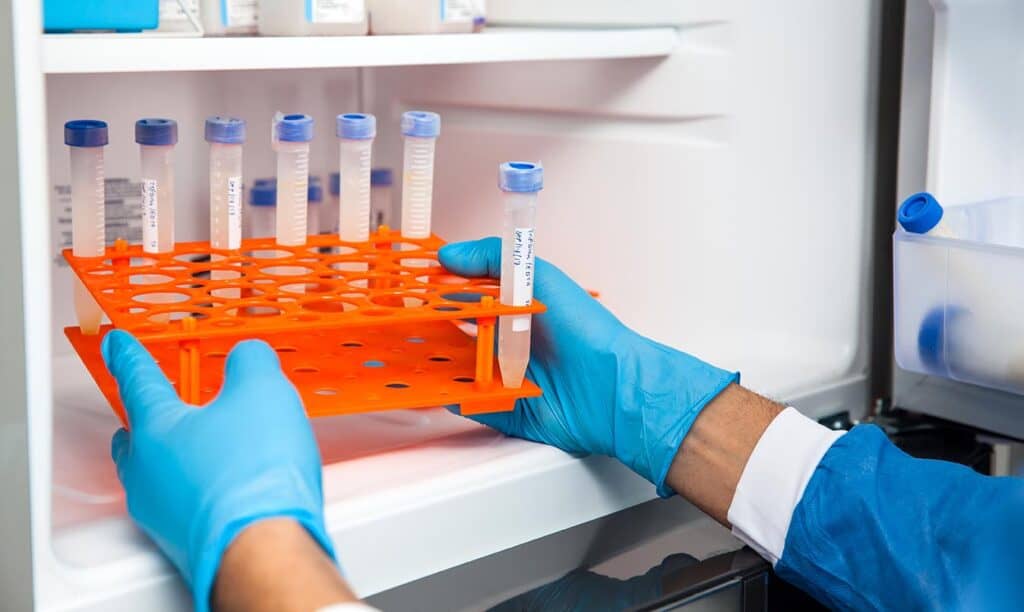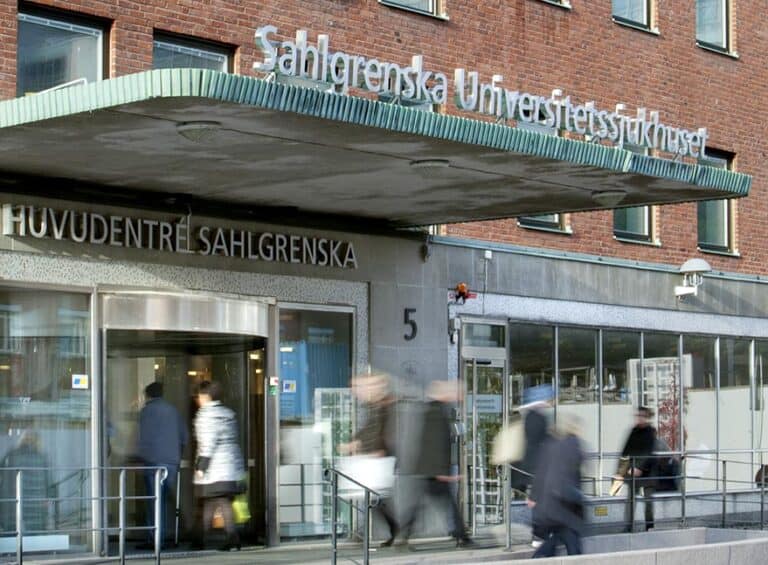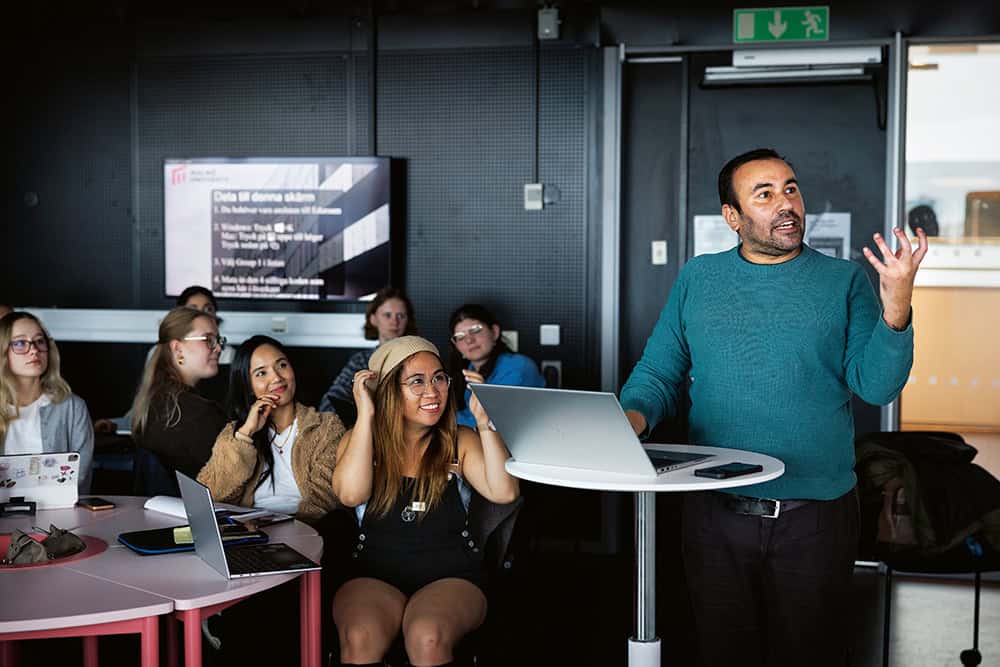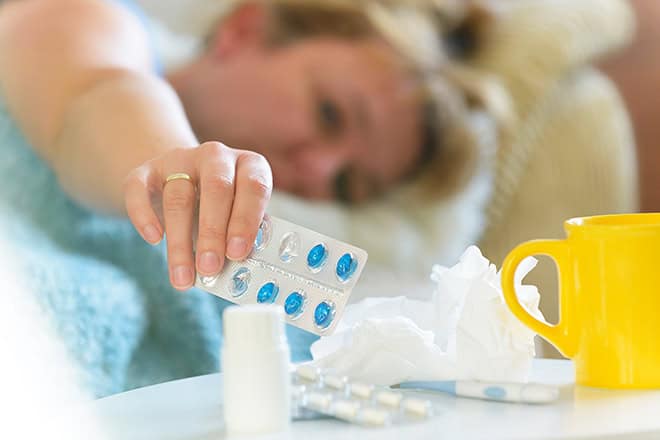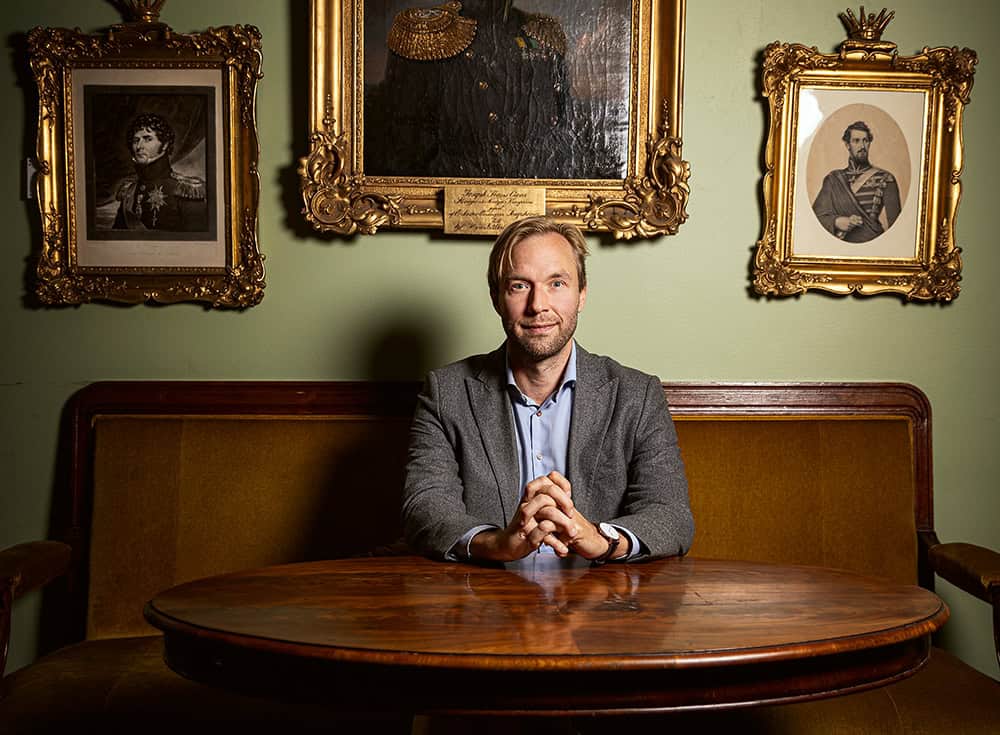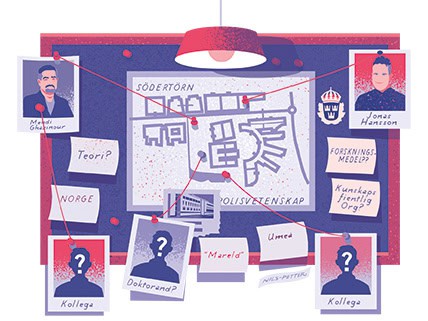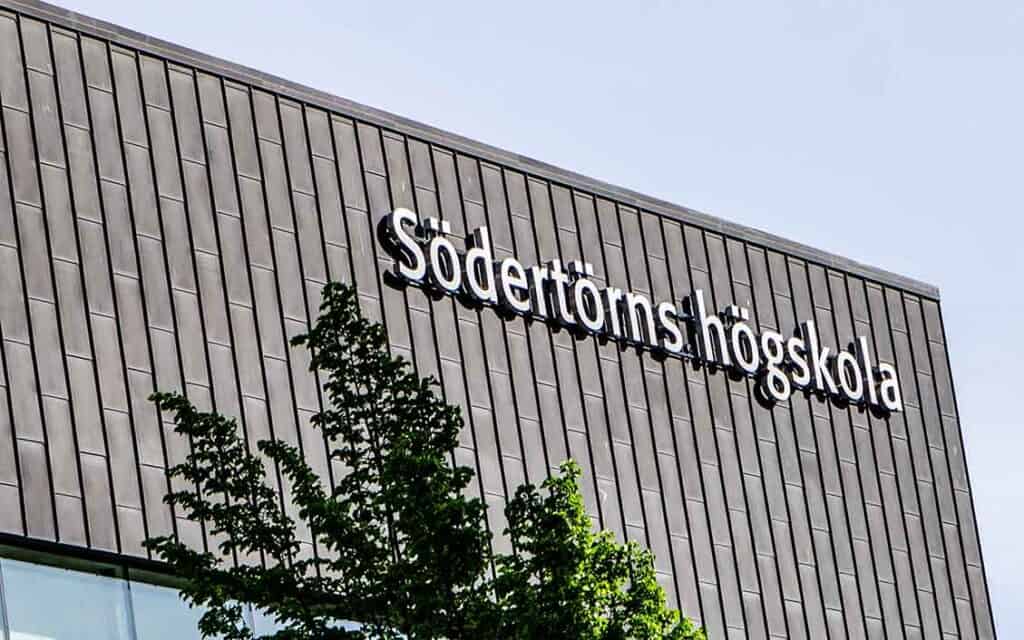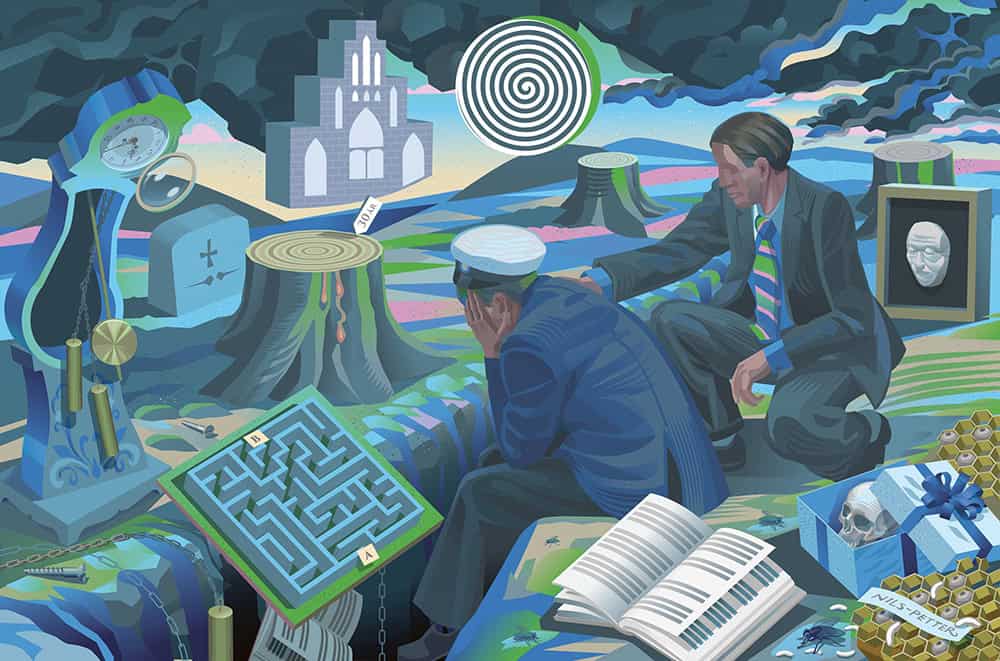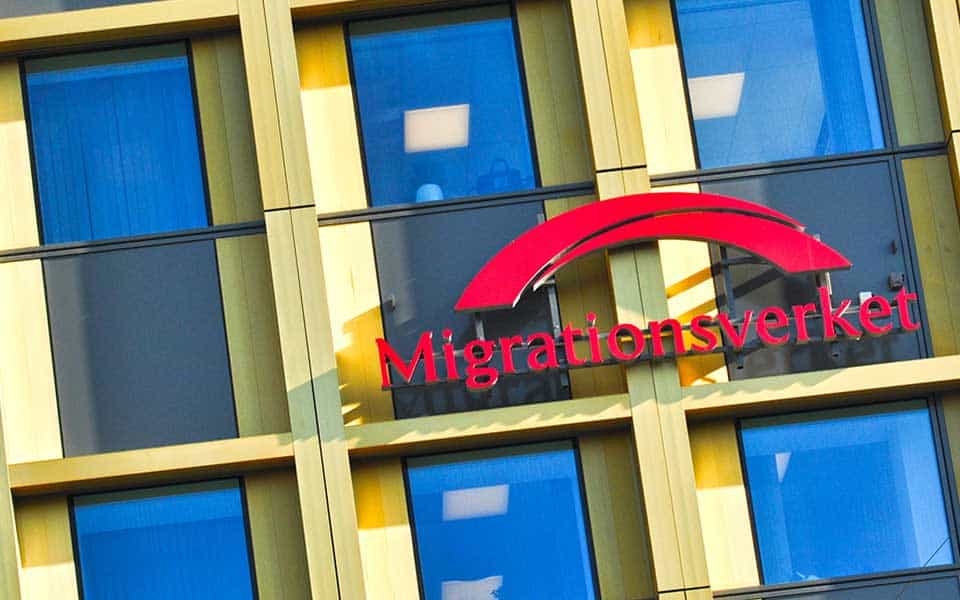On December 22nd last year, in conjunction with planned maintenance work in the Neo building – which is located at KI’s campus in Flemingsberg – the flow of liquid nitrogen connected to the biobank’s cryogenic freezers (freezers that maintain extremely low temperatures) was shut off.
The flow was never restarted and later that same evening emails and text messages were sent out, alerting that the planned refill of liquid nitrogen could not be completed.
Despite the alarm systems going off – and multiple reports from researchers who had visited the biobank during the Christmas holiday – it wasn’t until five days later that the Neo service team started working on the case. At that point the temperature in 16 of the in total 19 cryogenic freezers had increased and tens of thousands of samples, collected over multiple decades, had been destroyed.
KI has now presented a report from an internal investigation regarding the incident.
“The main reason behind the freezer failure is the lack of a clear division of responsibility at Neo. If there had been clear regulations as to how the freezers should be handled and what should be done when the alarm goes off, this most likely wouldn’t have happened”, says Magnus Håkansson, head of security at KI.
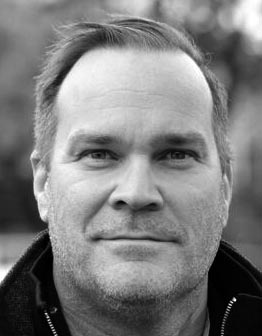
Magnus Håkansson
Head of security, KI
The report shows that there have been a number of issues at the Neo biobank since it was started in 2018. The biobank has been used as a sort of freezer hotel, where different groups of researchers can use the cryogenic freezers for their individual projects. The research groups are thereby responsible for the maintenance of their freezer and are expected to act on any alerts of failure.
But several of the people who have worked at Neo states that the division of responsibility has been unclear.
When the incident was first reported on by the media it was said that a technical issue had hindered alarms, that are meant to alert on issues with the freezers, to be sent out. However, the report shows that the alarms were sent out but the emails ended up being labelled as junk mail and the list of phone numbers used to send the texts was outdated and incorrect.
Several of the people interviewed for the report also said that the biobank had experienced a lot of false alarms through the years, resulting in a culture where people didn’t take any alert seriously. Early in 2022 the exact same issue that led to the freezer failure occurred. The flow of liquid nitrogen had been shut off due to maintenance work without anyone turning it back on.
At that time the service team discovered the error but noted that it was difficult to see the alert in the data system. This was never investigated further.
Magnus Håkansson, head of security, says that the service team at Neo, who should act as support for the researchers in working with the cryogenic freezers, lacks the knowledge that is required to do so.
“Recruiting for the team wasn’t based on prior knowledge or experience, but was instead done internally at KI. It is a team that is expected to do a broad range of service work, from delivering mail to maintaining the freezers. It is not an efficient solution”, he says.
The service team has also decreased in size since Neo started six years ago. Employees have left – without being replaced. This has resulted in the service team being unable to provide any service outside regular working hours, for example during holidays.
“There is no documentation to explain why there haven’t been any new recruits, so it is difficult for us to understand what has happened”, says Magnus Håkansson.
Lack of documentation is a recurring issue in the report of the freezer failure. At several points it is stated that the documentation that has been required at Neo – as decided by KI’s own guidelines – hasn’t been done. This makes it impossible to investigate whether the people working in the biobank ever got proper training for handling cryogenic freezers. Furthermore, the biobank didn’t routinely check the functionality of the alarms.
There were also no index over the samples being stored in the biobank, which makes it difficult to determine the exact amount that was lost. But in the report it is estimated that about 47 100 biological samples, collected over many decades, had been destroyed. Several of them had been used in cancer research.
Multiple people interviewed for the report states that they have raised the issues at the biobank at various points in time. But once again, there is no documentation that shows issues being discussed with the management team at Neo.
Magnus Håkansson was instated as head of security at KI in September of last year and was therefore quite new to the role when the freezer failure happened. He says that neither he nor the university management had any knowledge of the issues at Neo.
“Whenever there’s been any prior issue, the management team at Neo has reported it as having been solved locally. The university management has trusted that”, he says.
Shortly after the freezer failure was discovered the president of KI Annika Östman Wernerson decided to have guards patrolling all of the institute’s biobanks. It is a measure that will continue on until further notice, according to Magnus Håkansson.
“The guards are included in a service we already pay for, and we have found having them patrol the biobanks a success. We might find an even better solution in the future, but until then the patrolling will continue”.
Included in KI’s report are suggestions for how to improve the security at Neo, and prevent a similar incident to occur in the future. One of the suggested measures is to clarify the division of responsibility and the routines for documentation, and make sure these are properly implemented at Neo.
It also suggests that the hotel structure, with so much individual responsibility, should be scrapped and exchanged for a centralised management of all freezer facilities at KI.
What the future of the biobank at Neo will look like will be determined by an external investigation that is currently underway, in which KI’s internal investigation serves as a point of reference.
“We sincerely hope that researchers haven’t lost trust in us because of this incident, as we are taking this matter very seriously. We have informed the university management that there is a need to look over the security routines of the whole institute and we will do everything we can to make sure something like this never happens again”, says Magnus Håkansson.
